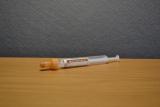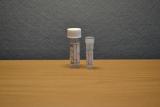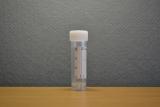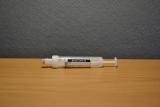Test Directory
β-d-glucan
Containers - Adult

Brown Cap, Gel Clotted
|
Volume Range
5ml |

White Capped Clotted Blood Tube
|
Volume Range
5ml |

20ml Sterile Universal Container
|
Volume Range
Bronchoalveolar lavage fluid |
Containers - Child

Brown Cap, Gel Clotted
|
Volume Range
5ml |

White Cap
|
Volume Range
5ml |

20ml Sterile Universal Container
|
Volume Range
Bronchoalveolar lavage fluid |
Laboratory Site
Wythenshawe Hospital
Southmoor Road
Manchester M23 9LT
Old Dalkeith Road
Edinburgh
EH16 4SA
Transport arrangements
As soon as practicable
Sample storage arrangements
Refrigerate at 4 to 6 degrees
How to request
By request form.
Availability
This is a referred test so should be sent Monday-Friday 9am-5pm.
Anticipated turnaround
14 days
General additional information
This test is sent to the Mycology Reference Laboratory in Manchester. EDTA bloods are NOT suitable
Guidance on use of fungal antigen tests is available from IDSA:
https://academic.oup.com/cid/article/63/4/e1/2595039
For chronic pulmonary forms of aspergillosis, Aspergillus antibodies are used instead of galactomannan and β-D-glucan tests. These tests are available from the Immunology laboratory.
For chronic cavitary pulmonary aspergillosis and aspergilloma, request Aspergillus IgG antibody test:
https://www.edinburghlabmed.co.uk/TestDirectory/Pages/Display.aspx?tID=4590
For allergic bronchopulmonary aspergillosis (ABPA), request Aspergillus IgE antibody and total IgE tests:
https://www.edinburghlabmed.co.uk/TestDirectory/Pages/Display.aspx?tID=4589
Serum and BAL galactomannan is recommended as an accurate marker for the diagnosis of Invasive Aspergillosis (IA) in adult and paediatric patients when used in certain patient subpopulations (haematologic malignancy, HSCT) (strong recommendation; high-quality evidence).
Galactomannan is not recommended for routine blood screening in patients receiving mould-active antifungal therapy or prophylaxis, but can be applied to bronchoscopy specimens from those patients (strong recommendation; high-quality evidence).
Where patients not on mould – active therapy are being screened, samples should be tested twice a week. Galactomannan is not recommended for screening in SOT recipients or patients with CGD (strong recommendation; high-quality evidence).
Serial monitoring of serum galactomannan can be used in the appropriate patient subpopulations (haematologic malignancy, HSCT) who have an elevated galactomannan at baseline, to monitor disease progression and therapeutic response, and predict outcome (strong recommendation; moderate-quality evidence).
Serum assays for β-D-glucan are recommended for diagnosing IA in high-risk patients (haematologic malignancy, allogeneic HSCT), but are not specific for Aspergillus (strong recommendation; moderate-quality evidence)
β-D-glucan has not been extensively studied in IA to predict outcome (weak recommendation; low-quality evidence
Endocarditis Galactomannan and β-D-glucan tests may be used for diagnosis of invasive fungal infections such as endocarditis. Please discuss such cases with a Medical Microbiologist before ordering the test.
Pneumocystis pneumonia β-D-glucan may be used for confirming the diagnosis of Pneumocystis pneumonia when pulmonary samples are not available. Please discuss such cases with a Medical Microbiologist before ordering the test.
Severe influenza infection Patients with severe influenza are at increased risk for IA. Consider galactomannan testing of BAL in patients with influenza admitted to critical care. Serum galactomannan testing is also indicated but is less sensitive. A negative galactomannan result does not exclude IA. β-D-glucan testing of serum is a sensitive but non-specific test for invasive fungal infection, positive β-D-glucan tests unrelated to fungal infection are more likely during the first few days on the ICU and in patients with sepsis or receiving blood products or immunoglobulin therapy.
Please see current PHE guidance at: https://www.gov.uk/government/publications/seasonal-influenza-managing-cases-in-critical-care-units